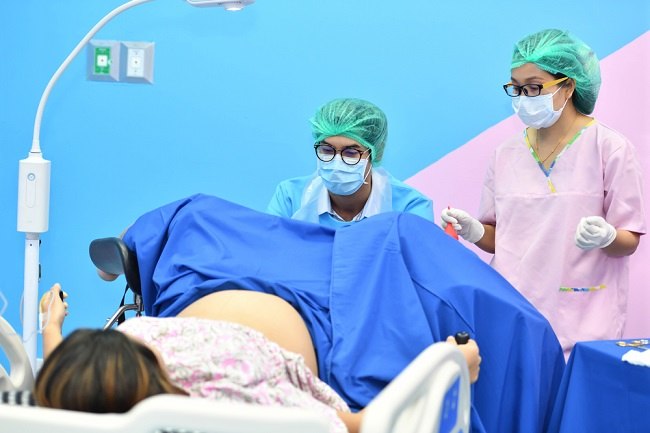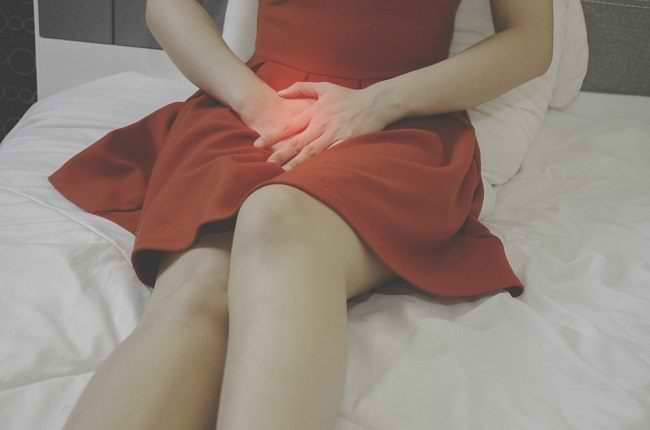A while ago, Moebius syndrome been widely discussed on social media. This syndrome is generally rare and is characterized by the infant's inability to show facial expressions. Actually, what is Moebius syndrome?
Moebius syndrome or Moebius syndrome is a rare neurological disorder that affects several parts of the brain, especially the part of the brain that controls muscles in the face, jaw, mouth, tongue, and eyelids.

This condition makes it difficult for sufferers to show facial expressions and even unable to smile, raise eyebrows, or frown. Moebius syndrome can occur in babies from birth and often makes it difficult for babies to eat, drink, and talk.
Possible Cause Moebius Syndrome
The main cause of Moebius syndrome is still not known with certainty. However, several studies have found that there are several factors that can increase the risk of a fetus being born with this condition, namely genetic disorders, exposure to pollution and toxic substances, and the side effects of certain drugs during pregnancy.
In addition, there is also a theory that suggests that Moebius syndrome occurs due to disruption of blood flow from the mother to the fetus, so that the fetus lacks the nutrients and oxygen needed for growth and development.
This makes the fetus experiencing blood deficiency more at risk of experiencing disturbances in the process of brain neurodevelopment, thus suffering from Moebius syndrome.
Various Symptoms Moebius Syndrome
The signs and symptoms experienced by people with Moebius syndrome depend on the nerves and parts of the brain that are affected.
As previously explained, the symptoms and signs of Moebius syndrome mostly occur in the facial area. However, in addition to facial disorders, sufferers of this syndrome can also experience abnormalities in other body parts.
The following are some of the signs and symptoms that can be experienced by people with Moebius syndrome:
- Weakness or complete paralysis of the facial muscles
- Difficulty swallowing, breastfeeding, and speaking
- Drooling a lot
- Difficulty showing facial expressions
- Small jaw and chin shape and size (micrognathia)
- Small mouth size (microstomia)
- Harelip
- Disorders of the tongue and teeth
- Cockeye
- Interlocked fingers or syndactyly
- Impaired vision and hearing
- Developmental disorders
- Weak body muscles
- Deformities of the feet and hands, such as inward bending of the feet (clubfoot)
Handling Moebius Syndrome
Because it can cause disorders and abnormalities in various parts of the body, babies born with Moebius syndrome usually need to be treated by various specialist doctors, such as pediatricians, neurosurgeons, plastic surgeons, ENT doctors, pediatric dentists, ophthalmologists, and specialists. other.
To treat Moebius syndrome, doctors can perform the following treatments:
Operation
Surgery is aimed at repairing damage to the facial muscles, eyes, or other body parts that are disabled due to Moebius syndrome.
The surgical steps that can be performed include cleft lip surgery, eye surgery to correct crossed eyes, leg repair surgery, and plastic surgery to improve the shape of the face and body of patients with abnormalities.
One of the surgical techniques that are now also widely used in patients with Moebius syndrome is the smile or surgery technique smile procedure. This surgical technique is performed to improve facial muscles so that sufferers can smile, talk, and eat and drink better.
Insertion of a nasogastric tube (NGT)
People with Moebius syndrome often have difficulty eating and drinking because they are unable to swallow or move the muscles of the jaw, face, tongue, and mouth.
Therefore, the doctor may place a feeding and drinking tube through the nose into the stomach to deliver food and drink. This tube is generally inserted so that the patient can swallow well.
Physiotherapy
Physiotherapy or physical rehabilitation aims to improve and strengthen the body muscles of patients with Moebius syndrome who experience weakness. With physiotherapy, people with Moebius syndrome can be trained to walk and move their hands better.
In addition, to help improve speech, the doctor will also advise the patient to undergo speech therapy.speech therapy). This therapy can also be done to improve facial muscles and help sufferers to eat and drink or swallow better.
Due to the higher risk of developing developmental disorders, babies or children born with Moebius syndrome also need to get growth monitoring and stimulation from a pediatrician.
Basically, Moebius syndrome can't be cured. However, with the various treatment steps above, doctors can help sufferers with Moebius syndrome to grow and develop better and be more independent in life.
If your child has symptoms that suggest Moebius syndrome, take him to the doctor so that he can be examined and given the right treatment.









